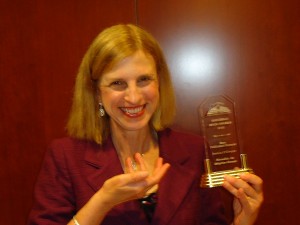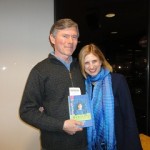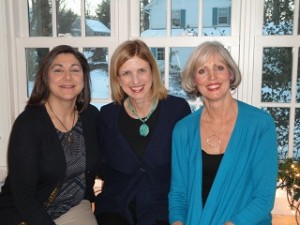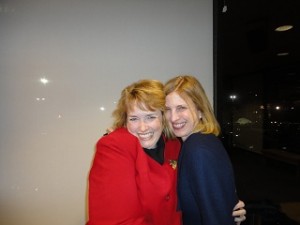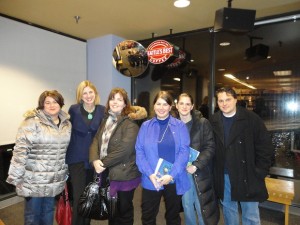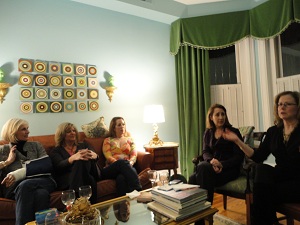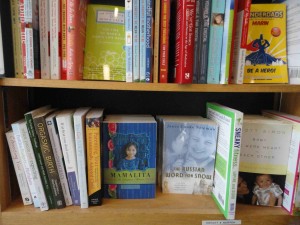I sent off my manuscript to a first wave of Beta readers and for the first few days after, I felt adrift and purposeless. Shouldn’t I be writing, editing, rewriting? That was my existence for the past (many) years: sitting at a table or desk, opening my laptop, and beginning to work.
Now I’m floating in the sweet space of possibility, hoping my readers will like my first novel, and not yet faced with the million more edits I’ll undoubtedly need to make based on their feedback.
The first real writing workshop I ever attended was in 2006, at Squaw Valley. My project-in-progress was my memoir, Mamalita. I remember the first night, during orientation, sitting in a room filled with other writers and feeling like I’d made it to somewhere great, finally. And then, during workshop the next morning, having my pages–the pages I’d agonized over–ripped apart.
I came home, devastated. My book was trash. I’d never finish it. I spent a few weeks flattened by despair, then steeled myself to re-read the workshop’s comments. They were as bad as I remembered, as harsh, but contained within were morsels of hope: “A good story,” someone said. “I’m interested,” said another. “Keep going,” urged a third.
The criticism could make the work stronger, if I was willing to listen. The key was to stay open enough to receive the knowledge generously offered.
For years, I studied dance in New York. One of my teachers once said only two things were required to master technique: the desire to learn, and someone to teach you.
I don’t know if I’ll ever “master” writing. But the desire is there, and I’ve found the teachers.
Regardless of what happens with my manuscript, I needed to write this novel in order to tell this story. At last, I’m free of it.
Photo credit: Jeffrey DuFlon; poetry reading with friends.
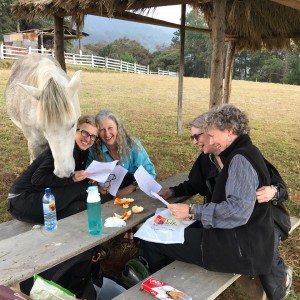



 ShareThis
ShareThis